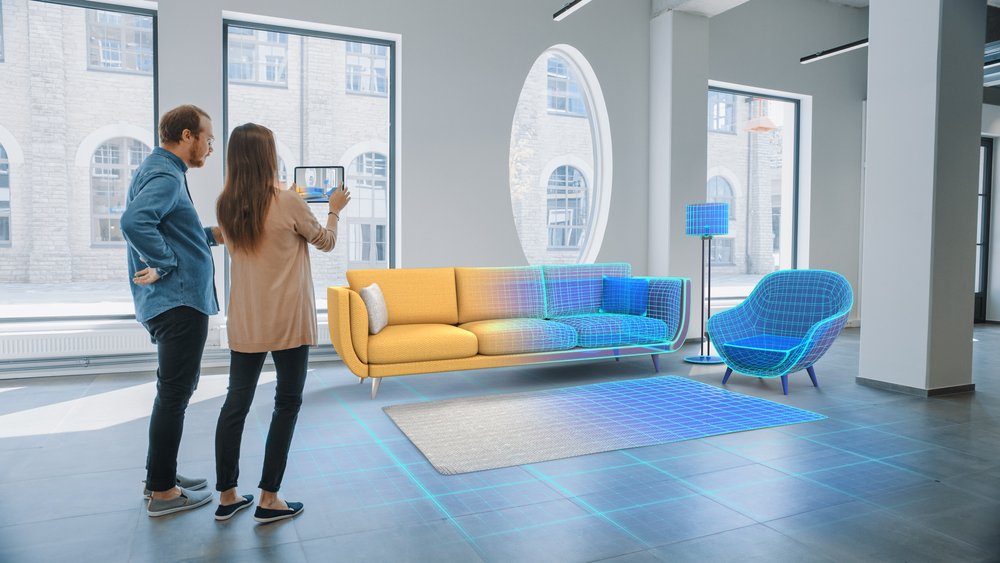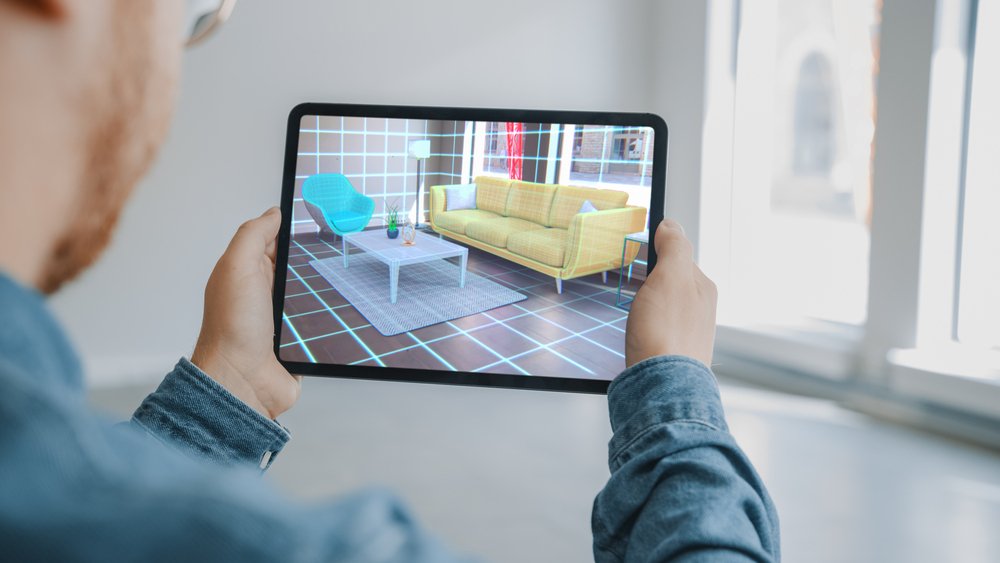In today’s changing digital environment, e-commerce business owners face a constant challenge: standing out in a crowded market. So, adopting cutting-edge technologies become essential as consumers seek immersive and personalized experiences. To do this, you can adopt Augmented Reality (AR) and Virtual Reality (VR).
Also if both have enormous potential to change how companies interact with their customers, AR stands out as the undisputed leader in e-commerce, providing a variety of special advantages over VR.
In this article, we examine the difference between augmented reality and virtual reality, as well as why e-commerce business owners should prioritize AR over VR.
The World of Augmented Reality (AR): Blurring Boundaries and Elevating Customer Experience
Augmented Reality broke the boundaries of reality. It combines the real and virtual worlds. AR enables e-commerce companies to provide a revolutionary shopping experience by superimposing 3D elements, like products, onto the real world.
For example, think of a customer browsing your online store and being able to see –with just a tap– how a piece of furniture would look in their living room or how a new pair of shoes would go with their outfit.
AR makes the shopping experience more engaging, immersive, and deeply individualized. Also, it creates emotional connections with your customers and this leads to trust, loyalty, and higher conversion rates.
Some results? AR experience can bring a remarkable 30% increase in sales and reduced returns by 40%!

The Promise of Virtual Reality (VR): Stepping into a New Dimension
On the other hand, virtual reality (VR) builds fully immersive digital worlds that transport users away from their physical surroundings. VR is excellent for gaming and entertainment applications, but it has difficulties being adopted in e-commerce.
VR accessibility is constrained by the need for specialized hardware, such as headsets. Additionally, the need for a dedicated space for VR experiences prevents impulsive shopping and unplanned exploration.
Also, implementing VR can be expensive for e-commerces, making it less feasible for adoption on a large scale.
AR vs. VR for E-Commerce: Why AR Takes the Lead?
There are two main reasons e-commerce should prioritize AR:
- Usability and Accessibility. Unlike virtual reality, augmented reality needs just a smartphone or a tablet – which are widely accessible to most consumers. As a result, no additional hardware is needed to access AR experiences. Also, e-commerce can easily incorporate AR into their website, giving customers instant access to immersive experiences without dealing with any additional complexity.
- Greater Engagement. AR helps to close the gap between online and offline shopping experiences. In fact, customers can view products in their actual environments, explore 3D product models, and virtual try-on clothes. This lead to increasing customer engagement and driving conversions.

Conclusion
Innovation, creativity, and the capacity to establish a strong emotional connection with customers are essential for staying ahead of your competition.
The origin of AR as a game-changing technology opens up limitless possibilities for e-commerce. Virtual Reality cannot compete with AR’s emotionally impactful shopping experience.
An unforgettable shopping experience that leaves a lasting impression on your customers is what you want to create as an owner of an online store. And, you can accomplish this by bringing the spirit of a physical store into the digital sphere using augmented reality. Create a sense of wonder and excitement in your customers by immersing them in interactive and personalized experiences. This will encourage them to make confident purchasing decisions.
So it’s time to unlock the potential of AR, redefine the way you engage with your customers, and create an extraordinary shopping experience that resonates on an emotional level. Step into the world of Augmented Reality and discover the benefits that your e-commerce can get.
Together, let’s transform the way you do business, one augmented reality experience at a time. Contact us at hi@eyedex.co.

